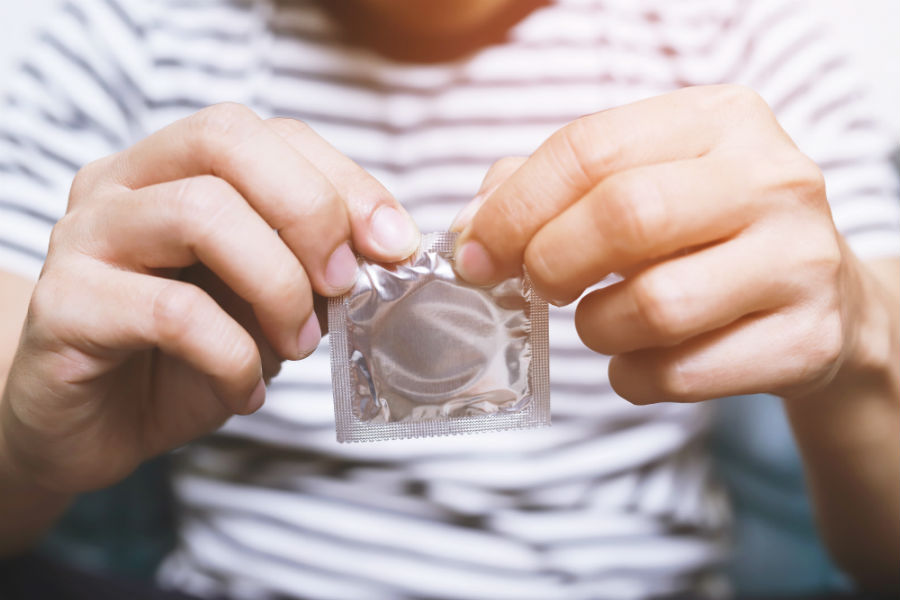Syphilis: What is it and why should gay men get tested regularly?

When did you last get checked for syphilis?
If you’re a man who has sex with other men, it was hopefully at your last STD screening. It’s recommended that if you’re sexually active, you have at check-up at least once a year – or more often if you have multiple partners.
For many reasons, syphilis rates have been soaring amongst gay and bi guys. In October, the Center for Disease Control revealed that STD rates had risen for a fifth year in a row in the US.
In 2014, just over 12,200 men who have sex with men were diagnosed with the disease. In 2018, that had risen to 18,760 – and over 60% of syphilis cases in the US are among men who have sex with men.
Related: Syphilis infections on the rise in the gay community
And it’s not just in the US. There are currently outbreaks in both Ontario and Edmonton, Canada, where numbers have “increased dramatically” since 2014.
There’s been a significant rise in the UK and Australia, while a new campaign has been launched in New Zealand this week to remind people that syphilis is not a disease of the Dark Ages.
Juxtaposing Shakespeare imagery and language with modern pick-up lines, the campaign wants to remind people that syphilis is very much a problem in the here and now.

“Syphilis is not something many people thought they’d have to worry about in their lifetimes, so there’s a real lack of knowledge about it,” said Mickey Power, marketing, communications, and fundraising manager, NZAF, to Branding in Asia.
The rise in rates could be partly because more men are engaging with condomless sex. It could be an increase in hook-ups via apps.
Related: Once-a-month injection to treat HIV passes two initial trials
It doesn’t help that syphilis can go unnoticed for a long period of time. However, just because the symptoms may be overlooked, that doesn’t mean it’s not doing great damage to your body. And left untreated, it can prove fatal.
Fortunately, if picked up early, treatment consists of antibiotics.
Know nothing about syphilis? Here are the basic facts:
Syphilis is a bacterial infection that, among gay men, is most commonly transmitted through unprotected anal sex, oral sex, and other activities like rimming.
The first sign of infection will be a painless sore, ulcer or hardened lump near the point of infection. However, those infected may not even notice this primary infection or they will dismiss it as insignificant.
Wearing a condom will help prevent you from acquiring syphilis, but not in every case. Let’s be honest: hardly anybody wears condoms for oral sex, and sometimes the sore may not be obvious or located on the genitals.
The sore or lump will go away. However, that doesn’t mean that you’re now free of syphilis.
You will become infectious to others, and although the bacteria may lay dormant in your system for years, it will eventually cause serious health problems.
Late-stage symptoms of syphilis – which may not occur many years later – can include blindness, deafness, brain damage, and heart attacks. Yes, those old 19th Century tales of people going mad with syphilis are based on fact.
That’s why it’s so important to have a blood test to check whether you have the infection. This is regardless of whether you think you have any symptoms and even if you always use condoms.
Gay and bi men should have a blood test for syphilis at least once a year. If you have multiple partners, do not feel ashamed or embarrassed to be tested twice a year or even more often than that.
Staff at sexual health clinics are not going to judge you and would prefer you to be diagnosed and treated promptly.
If you are diagnosed with syphilis, do also get checked for HIV. As syphilis symptoms can include open sores, this can increase the chances of HIV getting into your body. In recent years, around half of all gay men who test positive for syphilis test positive for HIV.
Related: Scientists ‘optimistic’ about HIV vaccine – possibly even by 2021
Can’t get to a clinic? It’s possible to order a home-testing STD kit online. Whichever way you choose to get tested, just make sure you are tested – and make it a regular part of your health routine.
If you are diagnosed with syphilis, it’s also important to inform anyone that you’ve had sex with. Yes, that might feel super awkward and they won’t welcome the news, but for the sake of their health, it’s better to know.
Depending on where you live, some clinics or health agencies may offer to notify people anonymously, so ask staff about this.









